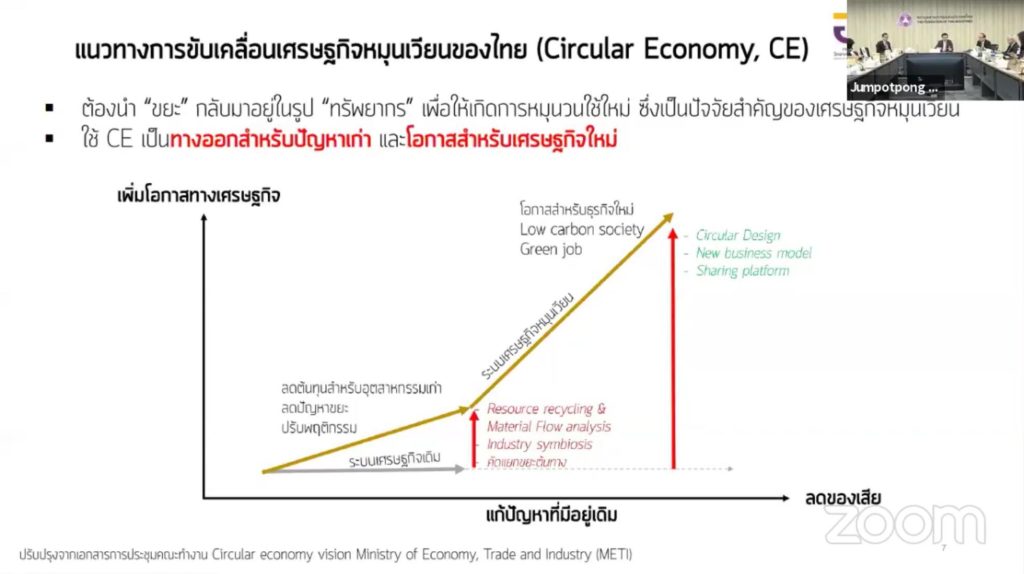NXPO President Dr. Kitipong Promwong recently spoke at Bio-Circular-Green Economy (BCG) seminar organized by the Federation of Thai Industries (FTI). The seminar aims to introduce BCG model, policy and its benefit to FTI members.

BCG intends to utilize knowledge, technology and innovation to create sustainable economic growth with the concepts of bioeconomy, circular economy and green economy. BCG strategy consists of four areas: 1) promoting sustainability of biological resources, 2) strengthening communities and grassroots economy, 3) upgrading and promoting sustainable competitiveness of Thai BCG industries, and 4) building resilience to global changes. BCG model will transform Thailand’s comparative advantage in biological and cultural diversity to competitive advantage.

BCG model will be applied to four main industries – namely agriculture and food; medical and wellness; bioenergy, biomaterial and biochemical; and tourism and creative economy. These four industries currently have a combined economic value of 3.4 trillion THB (21% of GDP). With advanced technology, greater value can be created to farm commodities or even waste or by-products. For instance, xanthone extracted from mangosteen pericarp is valued at 2,000 THB/kg and the price can go as high as 200,000 THB/kg for pure grade. Precision agriculture helps farmers improve their productivity and upgrade quality aiming for premium markets. With BCG model, Thailand will be able to improve productivity and introduce higher value products and services, and thus will be able to escape middle-income trap.
Traditional manufacturing process follows a linear business model, resulting in high quantity waste which poses high cost to treat and dispose and creates negative environmental consequences. Circular economy (CE) is a solution to this problem. Circularity aims at reusing and recycling materials to maximize the value of limited resources. It helps improve resource use efficiency in industry and offers new business opportunities. Thailand’s CE model aims to reduce resource use by 1/3 and cut down greenhouse gas emission by 25% with actions such as industrial symbiosis – the process by which wastes or by‐products of an industry or industrial process become the raw materials for another, reverse logistic & recycle and circular food waste. Furthermore, new types of businesses are expected to emerge through programs such as CE Solution Platform, CE Service Provider and CE Entrepreneurs.
The government will support BCG development through R&D program, collaborative platform and incentive and regulatory measures. A 30 to 40 billion THB budget will be allocated for BCG actions.







